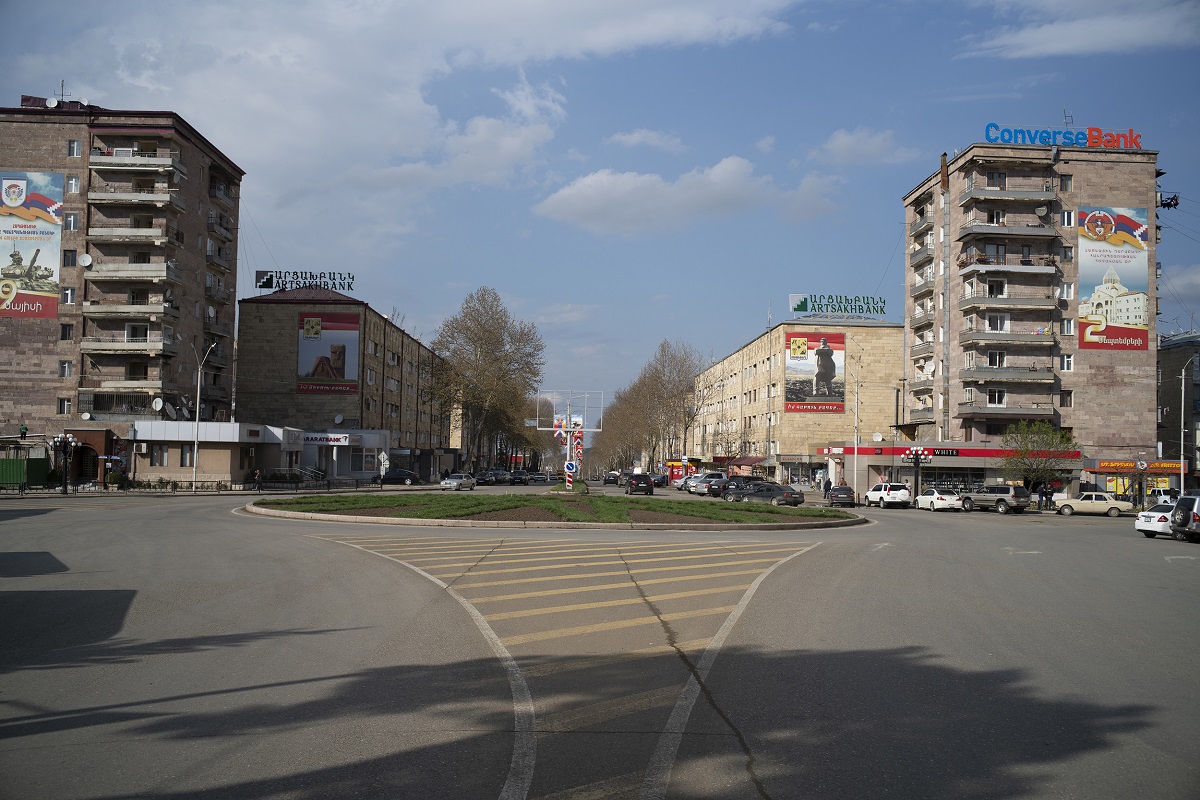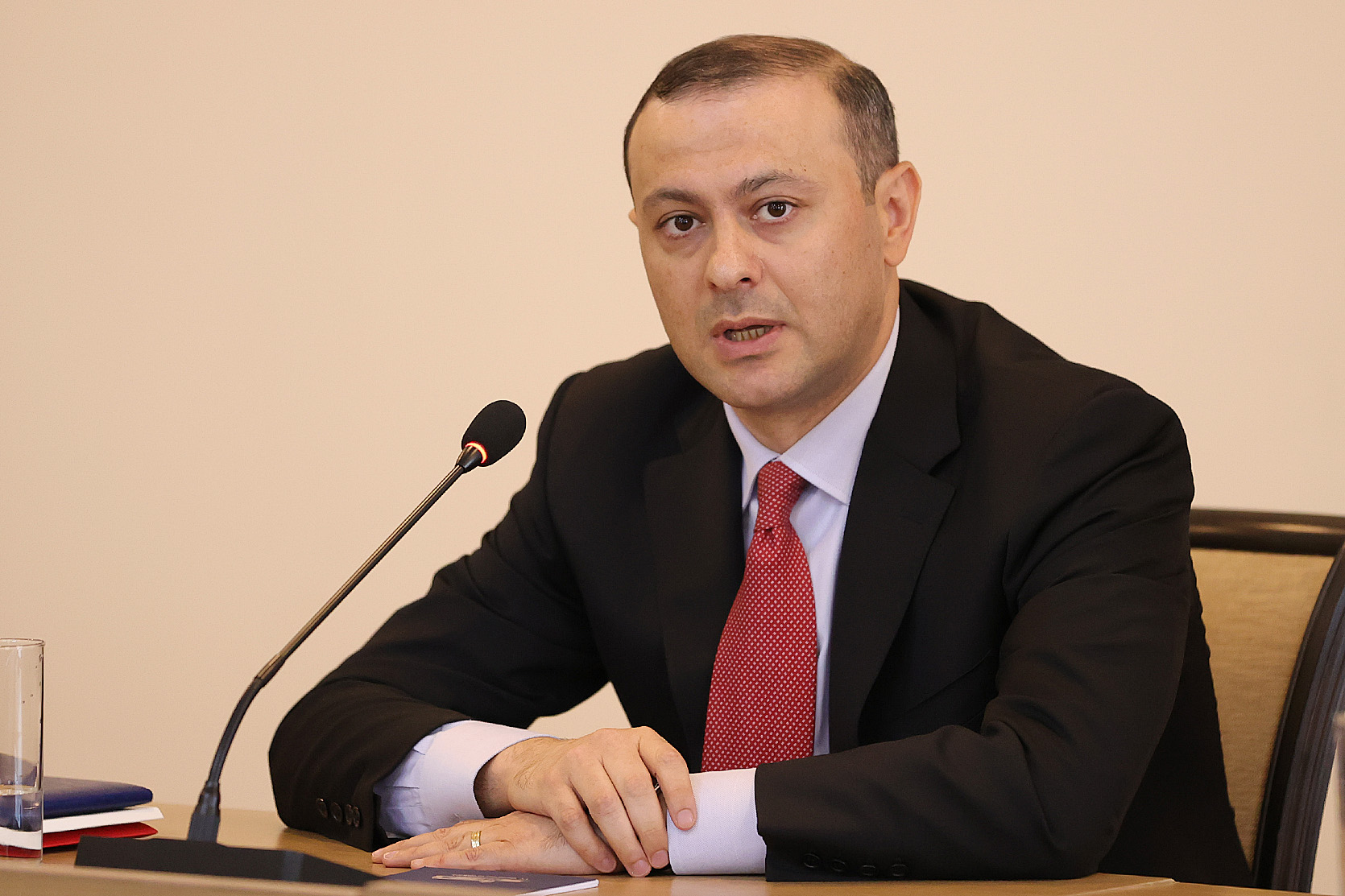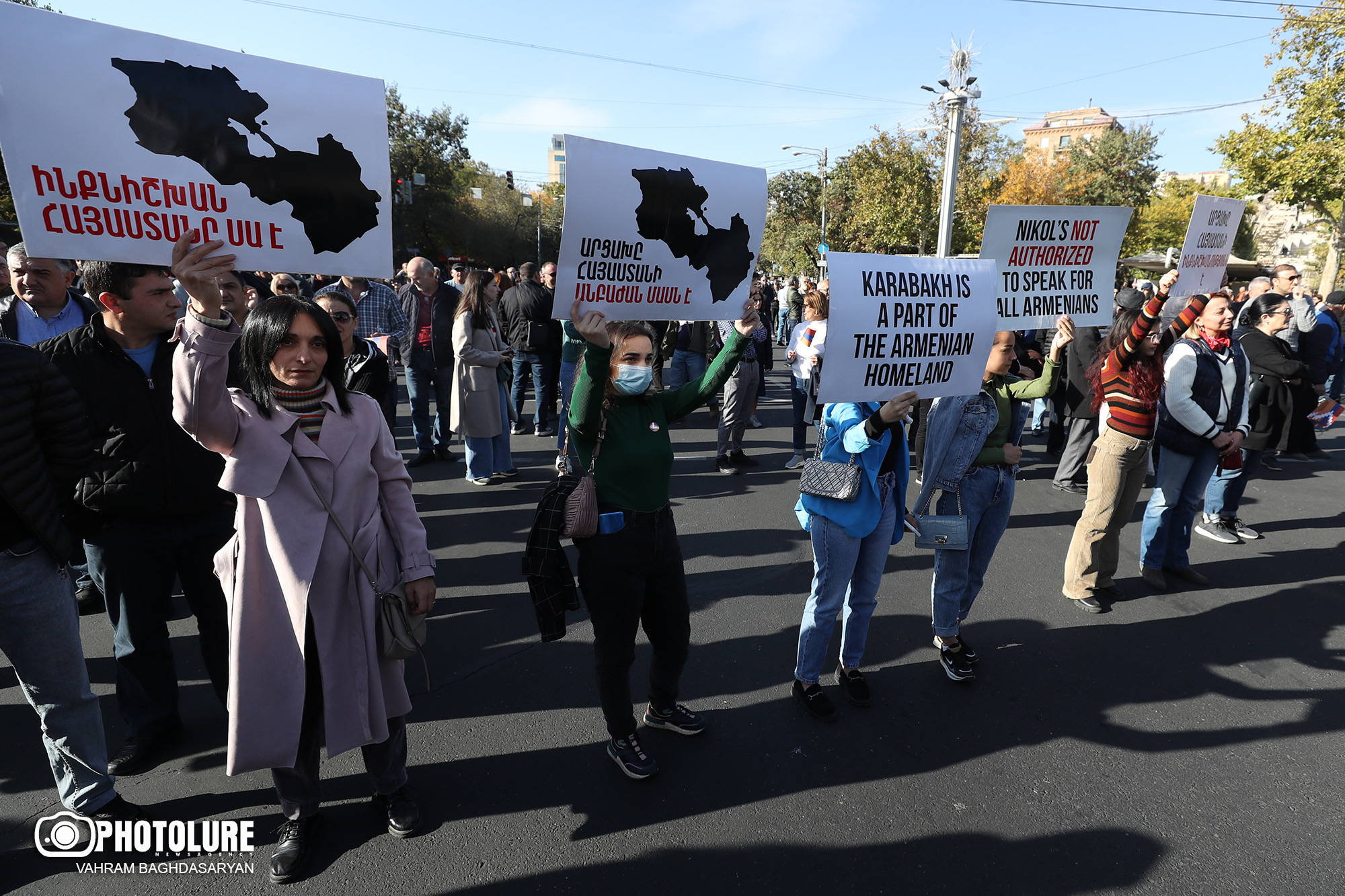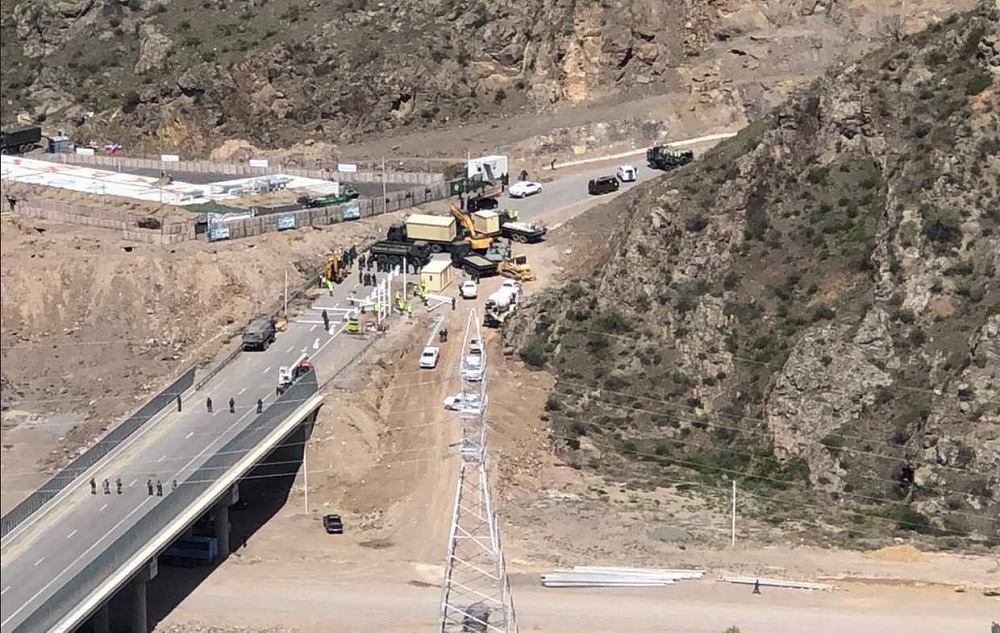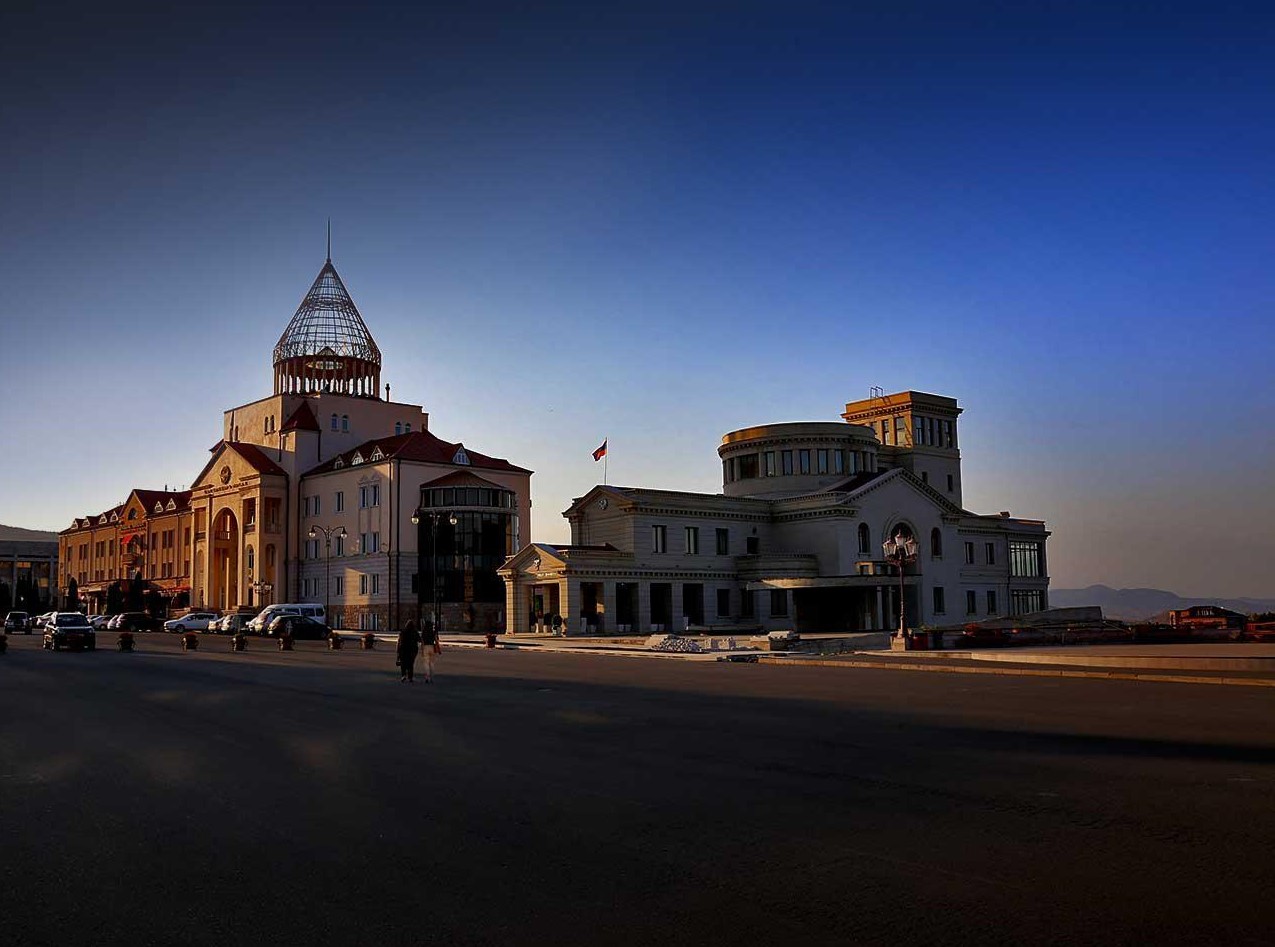NK unanimous on self-determination, political differences set aside
Political consensus on self-determination of NK
The statement of Armenian Prime Minister Nikol Pashinyan that his government is ready to recognize the territorial integrity of Azerbaijan, including Nagorno-Karabakh, provoked a strong protest in the NKR itself. The President of the unrecognized republic, Arayik Harutyunyan, called it a “red line”, despite the fact that the Prime Minister of Armenia specifically stipulated the provision of the rights and security of residents.
After Pashinyan’s statement, a consensus formed among local political forces which hold radically opposite views on some issues. All the parties announced that they would not agree to any solution that was contrary to self-determination.
- “The territorial integrity of Azerbaijan includes Nagorno-Karabakh,” and other statements by Pashinyan
- Russian and Western platforms for Baku-Yerevan negotiations: Similarities and differences
Naira Hayrumyan, political commentator
Օfficial position
“The parliament was the first to speak immediately after Pashinyan’s statement. At an extraordinary meeting convened late in the evening of May 22, the deputies adopted a statement stating:
“Nikol Pashinyan grossly violates the principles relating to Artsakh, enshrined in the Declaration of Independence and the Constitution of the Republic of Armenia, in particular, the imperative provision of the resolution of the Supreme Council of the Republic of Armenia of July 8, 1992 that “any international or domestic document in which Nagorno “The Karabakh Republic will be listed as part of Azerbaijan, which is considered unacceptable for the Republic of Armenia.” We reaffirm that the status of Artsakh has already been determined by the nationwide will of December 10, 1991, and no power has the right to change it.”
The deputies unanimously voted for the text:
“Any statement by Nikol Pashinyan that ignores the sovereignty of the Republic of Artsakh, the right of our people to self-determination and the fact of its implementation, as well as any document drawn up on its basis, is unacceptable and does not represent significance for us. Artsakh will never give up the steady path of its struggle.”
Then President Arayik Harutyunyan confirmed this position:
“For us, any statements and documents that ignore the sovereignty of the Republic of Artsakh, the right of our people to self-determination and the fact of its implementation are unacceptable. Artsakh has not been and will not be part of Azerbaijan, since this is the will of our people, who have sufficient determination to fight for their rights and interests.”
Harutyunyan also announced the termination of all discussions that had begun earlier on holding a referendum of confidence in local authorities, presidential and parliamentary elections.
A few days earlier, Parliament Speaker Artur Tovmasyan suggested to President Arayik Harutyunyan that he create a State Defense Committee, “and if it doesn’t work,” resign. He suggested including former state minister and big businessman Ruben Vardanyan, as well as former defense minister Samvel Babayan, in this body.
Arayik Harutyunyan is considered the provider of Nikol Pashinyan’s policy, however, like Samvel Babayan. Ruben Vardanyan is perceived as a conductor of the interests of some Russian circles, although he moved here to live, renouncing Russian citizenship.”
- “Vardanyan was not fired at Aliyev’s request”: opinion from Yerevan
- “NK Armenians have the right to self-determination” – Ruben Vardanyan in an interview with BBC
- “We are all soldiers in defense of the motherland” – a businessman who became a state minister
Everyone supports the official position, including the opposition
The most active is the former state minister, billionaire Ruben Vardanyan.
The “Artsakh Security and Development Front” public movement organized by him issued a declaration declaring the need to consolidate “all parts of the Armenians and develop a new strategy for the security and development of Artsakh”:
“Power in Artsakh cannot fall to the ground even for a second. We must be absolutely united in the face of an external threat. Artsakh is ready to stand 100%.”
Ex-Minister of Defense, now the leader of the United Motherland party, the second parliamentary force, Samvel Babayan, offered himself for the role of state minister in order to solve priority tasks, and only for 100 days. Following Pashinyan’s statement, his party issued a statement:
“The achievements of the negotiation process on the settlement of Armenian-Azerbaijani relations, which will be enshrined in the peace agreement to be signed, have reached the point where Artsakh is already a ransom. Nikol Pashinyan does not have the authority to control the fate of Artsakh.”
The United Motherland Party sees the prerequisites for the implementation of the right to self-defense provided for by the UN Charter, the internationalization of the Karabakh issue through the right to self-determination.
Opposition politician Artur Osipyan, whose opinion is listened to by locals, believes:
“The so-called “peace treaty” will not be signed, and all this is just empty hype. Surrendering Nagorno-Karabakh is not so easy. For the powers concerned, this problem may turn out to be more important than for Armenia itself, but the problem, not its solution. So do not raise unnecessary noise that we were betrayed, we were betrayed, it’s all over. Everything is just beginning, Artsakh will speak for itself and better than the rest.”
Another well-known oppositionist Tigran Petrosyan stated that, despite the difficult situation “the people of Artsakh are determined to live and create on their land.” At his suggestion, an Anti-Crisis Committee was created under the President, which is called upon to “clean up the internal stables.”
Relations with Armenia
“In Nagorno-Karabakh, they are discussing why Yerevan does not use “the powerful political tool in its arsenal.” We are talking about launching the procedure for recognizing the independence of NK or returning to the implementation of the decision on reunification with Armenia of December 1, 1989.
“This is certainly fraught with threats. However, there are certain lines that cannot be crossed. It is impossible for the deputies of the Karabakh parliament, the speaker of the Karabakh parliament to give an assessment of Armenia. We help them,” Vigen Khachatryan, an MP from the ruling Civil Contract party in Armenia, said.
“Our compatriots living in Nagorno-Karabakh must live safely on their land and enjoy their rights. We see this path through the Baku-Stepanakert dialogue, within the framework of international mechanisms, where the people of Artsakh, as deputies in the NK parliament expressed their thoughts, can exercise both self-determination and all rights. And the Republic of Armenia can support our compatriots in this matter through all its diplomatic channels,” Artur Hovhannisyan, secretary of the ruling parliamentary faction, said.
There has been no response to these statements yet.”
Relations with Russia
“The presence of Russian peacekeepers after the 2020 war gave rise to certain expectations among the Armenians of NK from Russia, and as they are not justified, the attitude towards the Russian Federation is changing, sometimes dramatically.
In an interview with Novaya Gazeta Europe, Secretary of the Armenian Security Council Armen Grigoryan stated:
“There are no pro-Western sentiments in Nagorno-Karabakh. No Soros. Instead of NATO, there is a Russian peacekeeping contingent. And, nevertheless, there appeared anti-Russian sentiments. People in Karabakh are talking about the threat of ethnic cleansing. People have no hope that Russian peacekeepers will save them.”
Oppositionist Artur Osipyan recalls that at the rally organized by Ruben Vardanyan on May 9 in the capital of NK, three posters were taken away from the participants – “Putin is not responsible for his words”, “We demand UN peacekeepers” and “Russia violates the statement of November 9”.
“It seems that we are given to rally under the Russian flag, but this is not advertised,” he wrote.
Opposition politician Tigran Petrosyan stated that the Anti-Crisis Committee met with the new commander of the Russian peacekeeping contingent, General Lentsov, and discussed the violation of the tripartite statement on November 9, 2020:
“We noted that among the population the confidence in the Russian peacekeepers has sharply decreased, and we are waiting for the opening of the Lachin corridor. Many Artsakhians returned after the war, believing in Putin’s guarantees. Then Khtsaberd, Intager, Parukh were handed over to Azerbaijan, and now a checkpoint has been installed in the Lachin corridor. This shows that Russia is not fulfilling its obligations.”
By the way, in the course of recent actions in NK they “waited” for Russian flags and calls for joining Russia. The absence of such a collaborationist perspective, despite the pressure of Russian generals, made it clear to many in Armenia and in the world that the “Donbasization of Artsakh” is unrealistic.”
Arguments for self-determination
“In the current situation, the NK Armenians resolutely announce their intention to live in their homeland and “defend their thousand-year title to this land.”
The position of the people and the authorities is one. It is formulated as follows: only the recognition of the right to self-determination can become the basis for a lasting settlement of the conflict, the establishment of a long-term and just peace in the region.
“The settlement of Armenian-Azerbaijani relations, the delimitation and demarcation of borders cannot predetermine the solution of the Nagorno-Karabakh problem and the final status of Artsakh. If today it is impossible to reach a decision on the status of Artsakh, then it is necessary to postpone the decision until favorable conditions are created for this,” Foreign Minister Sergey Ghazaryan believes.
“Azerbaijan has no legitimate arguments to justify its claims regarding Artsakh, these are just falsifications seasoned with blackmail, using force and the threat of force,” former Foreign Minister Masis Mailyan said .
“The people of Artsakh exercised their inalienable right to self-determination in 1991 on the basis of the fundamental documents of international law – the UN Charter, the UN International Covenants on Rights, the Helsinki Final Act.
Although the Republic of Artsakh was not fully recognized by the international community, the fact of its independence was accepted as a reality, and its status was recognized at the international level as the status of a disputed and contested territory,” former State Minister Artak Beglaryan said.
He announced that one of the next traps and false arguments of Azerbaijan is about the continuity of Soviet borders:
“But Azerbaijan refused the succession of Soviet Azerbaijan and declared itself the successor of the Azerbaijan Democratic Republic of 1918-1920. In the pre-Soviet period, Nagorno-Karabakh was considered internationally by the League of Nations as a disputed territory, and with much more extensive territories compared to the former NKAO and the common border with Armenia. The main result of recent developments can be considered the absolute consolidation of society, the rejection of internal friction on any issues in order to achieve the main goal – self-determination.
Follow us – Twitter | Facebook | Instagram
Political consensus on self-determination of NK










